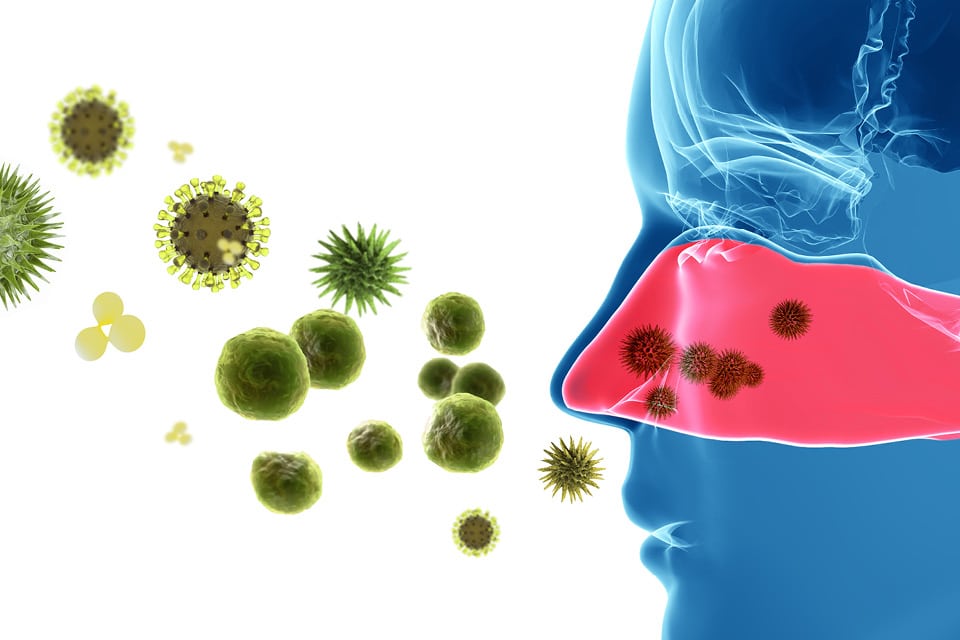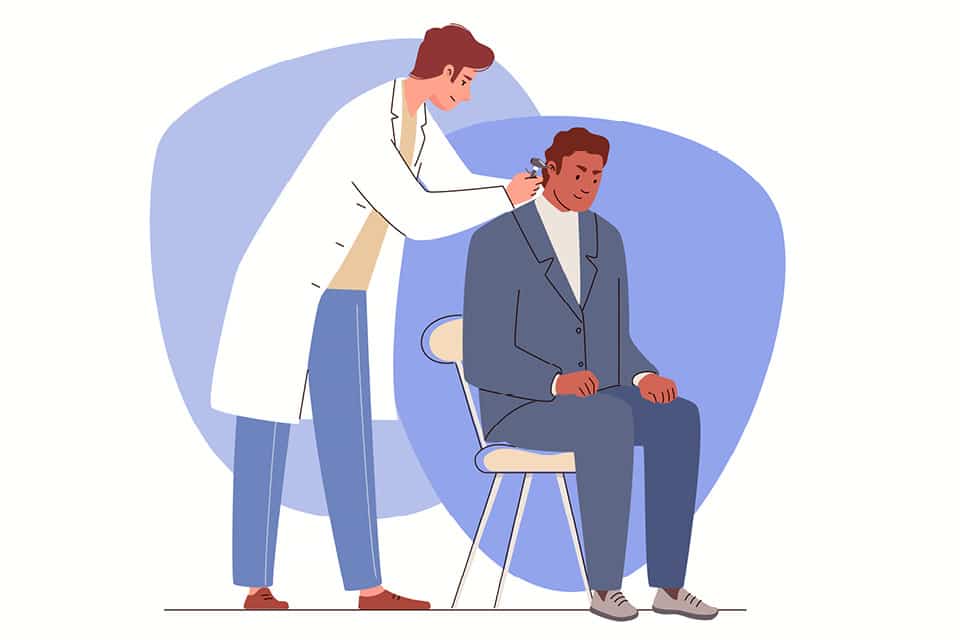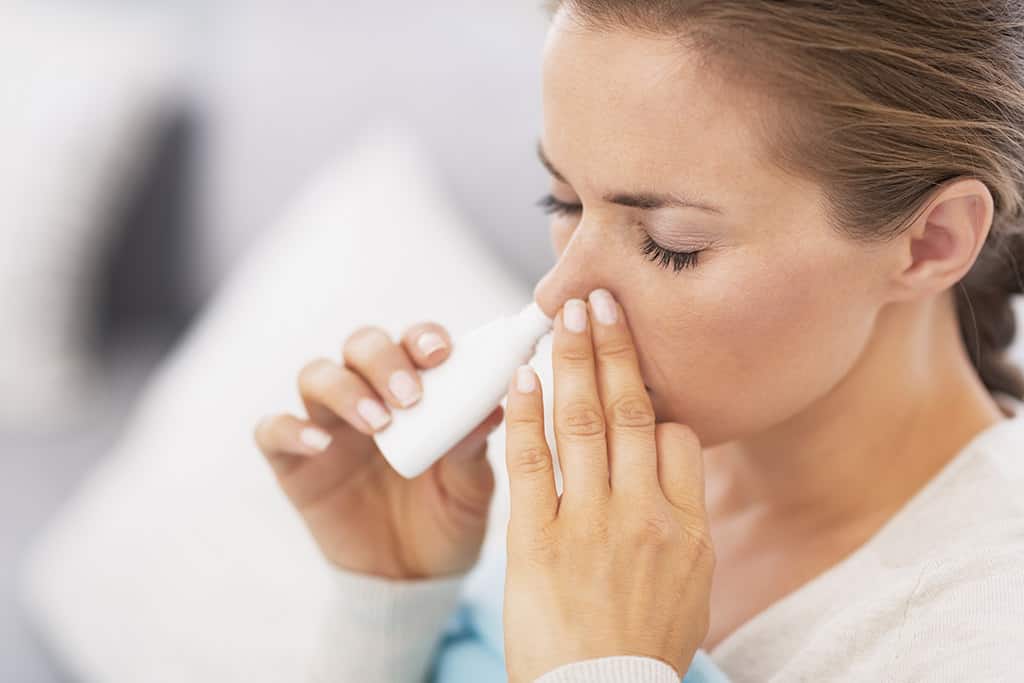Do You Have Allergies Or A Cold?

You cough, you sneeze and you suffer from congestion or a runny nose. But to get the relief you need, you must answer this big question: Do you have allergies or a cold virus (viral upper respiratory infection)?
First, it’s important to know the differences between allergies and the cold virus. The common cold and its symptoms usually begin when a virus enters your body, and your system reacts by fighting it. Allergy symptoms are the result of an overactive immune system. Your body mistakenly acts as if certain molecules (allergens), such as pollen, mold or pet dander, are germs and responds by attacking them.
While they share common symptoms of respiratory inflammation, such as congestion, sneezing, coughing and headache, allergies and the cold virus have some distinguishing characteristics. To tell which one you have, just pay attention to your symptoms and answer the questions below.
Ask Yourself These Questions About Your Allergy & Cold Virus Symptoms
How Long Do Your Symptoms Last?
The duration of your symptoms is a fairly reliable method of figuring out if you are suffering from a cold or allergies. While allergies can often linger for weeks or months, a cold virus normally causes nasal symptoms for between 3 and 14 days. While both can cause a cough or bronchitis that may last for weeks, if your nasal symptoms continue after a couple of weeks, it could mean that allergies are the cause.
Do You Have A Fever?
Fevers, body aches and a feeling of malaise (feeling sick) are typically associated with a cold virus. If you have these symptoms, you may be able to rule out allergies.
Do You Have A Sore Throat?
A sore throat is very common in the first several days of a viral upper respiratory infection (cold), but very uncommon in an allergy attack.
Are Your Eyes Itchy?
Sneezing can cause your eyes to water. However, itchy and watery eyes are nearly always tied to allergies. If your eyes become sore and very red, however, that might be “pink eye,” or conjunctivitis, which could be due to a virus.
Are Your Symptoms Seasonal?
The winter months are usually prime cold season. People spend most of their time indoors, where the cold virus is more easily spread. Allergies can be seasonal. The most common allergy triggers are tree pollen (spring), grass pollen (late spring and summer) and weed pollen (late summer and fall). Some people are also affected by year-round, or perennial, allergies to mold, animal dander and dust mites. Perennial allergy sufferers are less likely to have a lot of sneezing and itchy eyes than seasonal allergy sufferers, but are more likely to complain of nasal stuffiness and postnasal drip. If your symptoms are worse during a certain season, or if you have symptoms all year long, you may have allergies.
If You Suspect A Cold
There is no real treatment to cure a cold virus. Ibuprofen may help alleviate the malaise, sore throat, headache and fever, but other than that the best you can do is rest, drink plenty of fluids and wait it out. We do not encourage a lot of supplements or over-the-counter cold remedies, as they are mostly unproven and can cause adverse reactions.
If You Suspect Allergies
Think you have allergies? You can try to relieve your symptoms with over-the-counter medications such as non-sedating antihistamines or topical nasal steroids. If this is not an effective solution, you should see a doctor for an evaluation and possible allergy testing. An allergy test can identify exactly what you are allergic to (allergens) and a custom course of treatment can be determined. This treatment may involve immunotherapy, in which a patient is exposed to doses of allergens that, over time, will reduce or eliminate allergic reactions. In the past, immunotherapy was only available as shots, but now this treatment is available as allergy drops that are placed under the tongue at home on a daily basis. At CornerStone Ear, Nose & Throat, we have found that allergy drops are an excellent alternative to allergy shots for children and busy adults who might want to avoid the emotional trauma of needles or the hassle of weekly office visits.
Is It The Flu Or COVID?
If you also have symptoms of fever, body aches, or malaise, or if you suspect you have been exposed to COVID or the flu, you should get tested and seek treatment.
Could It Be A Sinus Infection?
Both colds and allergies can lead to a sinus infection, also known as sinusitis. With this condition, the linings of your sinuses, nose and throat become inflamed, often due to a secondary bacterial infection. Symptoms of a sinus infection include:
- Headaches
- Facial pain
- Sore throat
- Congestion
- Postnasal drip
- Teeth pain
- Yellow or green thick nasal discharge
There are a variety of options for treating sinus problems. Oral antibiotics, nasal or oral steroids, saline irrigations, and decongestants often help in the treatment of inflammation in the sinuses. For more severe or recurrent cases, and when medication has not been effective, surgery is also an option. For those with chronic symptoms or who have four or more sinus infections per year, CornerStone Ear, Nose & Throat offers both in-office and outpatient sinus procedures that do not require packing of the nose and only have a three- to four-day recovery time.
CornerStone Ear Nose & Throat has offices in Charlotte, NC, Monroe, NC, and Indian Land, SC. Call 704-752-7575 for an appointment to help with sinus infections, sinus problems, environmental allergies and other sinus-related issues.



